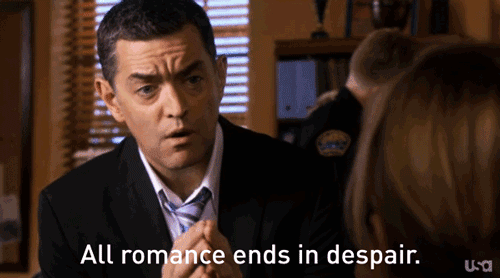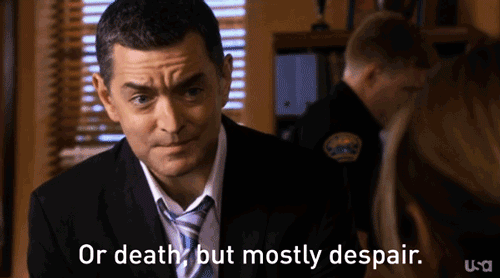I don’t know how much credence to give the psychological theory of the “Big 5” personality traits, but out of curiosity I did some self-assessments using certain instruments available for all the world online (such as this one and this one) and some consistent results came back which (1) might explain a lot about my life and (2) raise reasons for skepticism about some of the theses I argue for here at pyrosophy.
Here’s what comes back from the instruments in personality terms. I have high openness to experience and moderately high conscientiousness, but also unusually high neuroticism and unusually low extraversion and agreeableness.
A large part of human happiness comes from the affection and validation of others. Someone with a personality such as the one I have isn’t likely to have a life of great success at that. I’m not that likely to meet as many people because the social situations in which people meet each other (like parties, say) are situations in which I am likely to feel uncomfortable (as in fact, I often do). Chalk that up to low extraversion. If I do meet people, they’re likely to see me as not very nice — thanks, low agreeableness — and when things go badly in relationships with others, as they inevitably will for everyone and which seem especially prone to for the disagreeable introvert, I am likely to feel the hurt particularly keenly and brood on it for a long time thereafter, like a good neurotic.
A person such as myself will just not have a very good time of it in the world, except perhaps under very narrow and rare conditions. And I haven’t been that lucky, not that I expect to be, or think I’m entitled to be. No other people, whether individually or collectively, can be reasonably thought to be under any obligation to make up to me for what nature made me. Sure, it would have been better never to have been brought into existence, but it is too late for that.
Is it a small wonder, then, that I have a rather negative estimate of the extent to which life is mostly suffering? I have my own life to look at, and it seems that way to me, even though I am keenly aware that I have had many advantages in life which others have not. And, painful as it is to admit, it’s probably not much of a surprise that I would come to a pessimistic, perhaps even bitter, conclusion there is little enduring happiness to be found in the pursuit of romantic attachments. Perhaps also my personality might help explain why some of the best aspects of relationships I have had, romantic relationships included, have been epistolary in nature. It is far easier to overcome the negativity of one’s personality when one can choose one’s words in the leisure of letter writing, than when one must present one’s face and have one’s immediate reactions to things read thereupon. (An argument for masks!)
From one perspective, I am biased in my assessment of life. Though from another, I might be more accurate, because thanks to my low expectations of and distrust of people, I am disinclined to play go-along-to-get-along with the culture’s general optimism. Nonetheless, honesty compels me to admit the bias. The view that life is on balance suffering is a sort of factual judgment, albeit about a set of counterfactual situations, that is, judgments about choices that most people would make if they were offered them and if they were clear-headed and rational. My judgment could be wrong, and improperly colored by what sort of person I am.
The personality I have might also explain why it is that I am willing to make some of the eccentric value judgments I make. I have written before that if there were a certain kind of Experience Machine I would quite willingly plug myself in. And why is that? Well, in part because the Experience Machine can’t really scare me. From childhood I was the person I am now, and being highly open to experience but not likely to get the good kinds of experience from my peers (ahem) I spent a lot of time in books and, when they became available, other media as well. These were a source of pleasure — or at least palliation — that could not come from other areas of life. So why not improve on them?
As a moral skeptic I actually don’t think that the judgments of value can be right or wrong in the same way factual propositions are. Instead I end up with a view, one perhaps familiar to readers of Nietzsche, that your value judgments end up being a matter of one’s type, of durable features of yourself that you can’t really change much, any more than your height or your blood type.
And my lousy personality also doubtless explains a lot of what it is that I do going forward, which will be the subject for future posts here.



